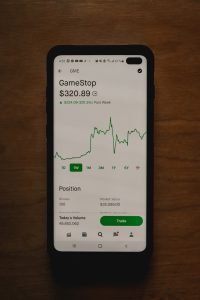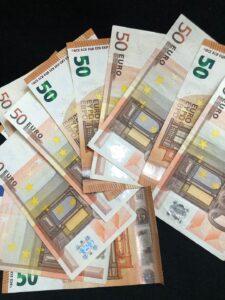Understanding Rollover Forex Swap: What It Is and How It Works
The forex market is a dynamic and fast-paced arena where traders from around the world engage in currency trading. To maximize their profits, traders must be aware of various factors that can affect their positions. One such factor is the rollover forex swap, a concept that is crucial to understand for any forex trader. In this article, we will delve into what rollover forex swap is and how it works.
What is Rollover Forex Swap?
Rollover forex swap, also known as a rollover interest or overnight interest, refers to the interest paid or earned by traders for holding positions overnight in the forex market. When a trader holds a position past 5:00 PM Eastern Standard Time (EST), which marks the end of the trading day, the position is subject to rollover interest.
In forex trading, currencies are traded in pairs. Each currency has an associated interest rate set by its respective central bank. Rollover forex swap is the difference between the interest rates of the two currencies in a currency pair. If the interest rate of the currency being bought is higher than the interest rate of the currency being sold, the trader earns rollover interest. Conversely, if the interest rate of the currency being bought is lower than the interest rate of the currency being sold, the trader pays rollover interest.
How Does Rollover Forex Swap Work?
To better understand how rollover forex swap works, let’s consider an example. Suppose a trader wants to buy 100,000 units of currency A against currency B, and the interest rate of currency A is 4%, while the interest rate of currency B is 2%. If the trader holds this position overnight, they will earn rollover interest of 2% on the 100,000 units of currency A.
The calculation of rollover forex swap involves two components: the interest rate differential and the position size. The interest rate differential is the difference between the interest rates of the two currencies in the currency pair. The position size refers to the number of units of the currency being bought or sold.
To calculate the rollover interest, traders can use the formula:
Rollover Interest = (Interest Rate Differential / 100) x Position Size
In our example, the interest rate differential is 4% – 2% = 2%. Let’s assume the position size is 100,000 units.
Rollover Interest = (2% / 100) x 100,000 = 2,000 units of currency A
The rollover interest is typically calculated and added or subtracted from the trader’s account at the end of the trading day. It is important to note that the rollover interest is subject to the broker’s policies and can vary between brokers.
Factors Affecting Rollover Forex Swap Rates:
Several factors can affect the rollover forex swap rates, including:
1. Interest Rate Differentials: As mentioned earlier, the interest rate differential between the two currencies in a currency pair is a significant determinant of the rollover forex swap rates. Higher interest rate differentials usually result in greater rollover interest.
2. Central Bank Policies: Central banks play a pivotal role in setting interest rates. Any changes in monetary policies by central banks can impact the interest rate differentials and, consequently, the rollover forex swap rates.
3. Market Volatility: Increased market volatility can lead to wider spreads and, subsequently, higher rollover forex swap rates.
4. Market Liquidity: Illiquid markets can result in wider spreads and higher rollover forex swap rates.
5. Weekend Rollover: The forex market is closed during weekends. Therefore, the rollover interest for positions held over the weekend is often calculated differently and can be higher than usual.
Conclusion:
Understanding rollover forex swap is essential for forex traders as it directly affects their profitability. Rollover forex swap refers to the interest paid or earned for holding positions overnight in the forex market. The calculation of rollover interest involves the interest rate differential and the position size. Various factors, including interest rate differentials, central bank policies, market volatility, market liquidity, and weekend rollover, can influence the rollover forex swap rates. Traders must stay informed about these factors to make informed decisions and manage their positions effectively.






